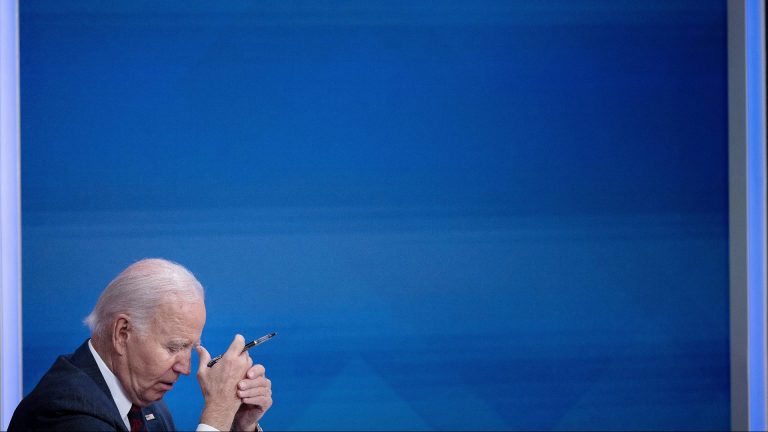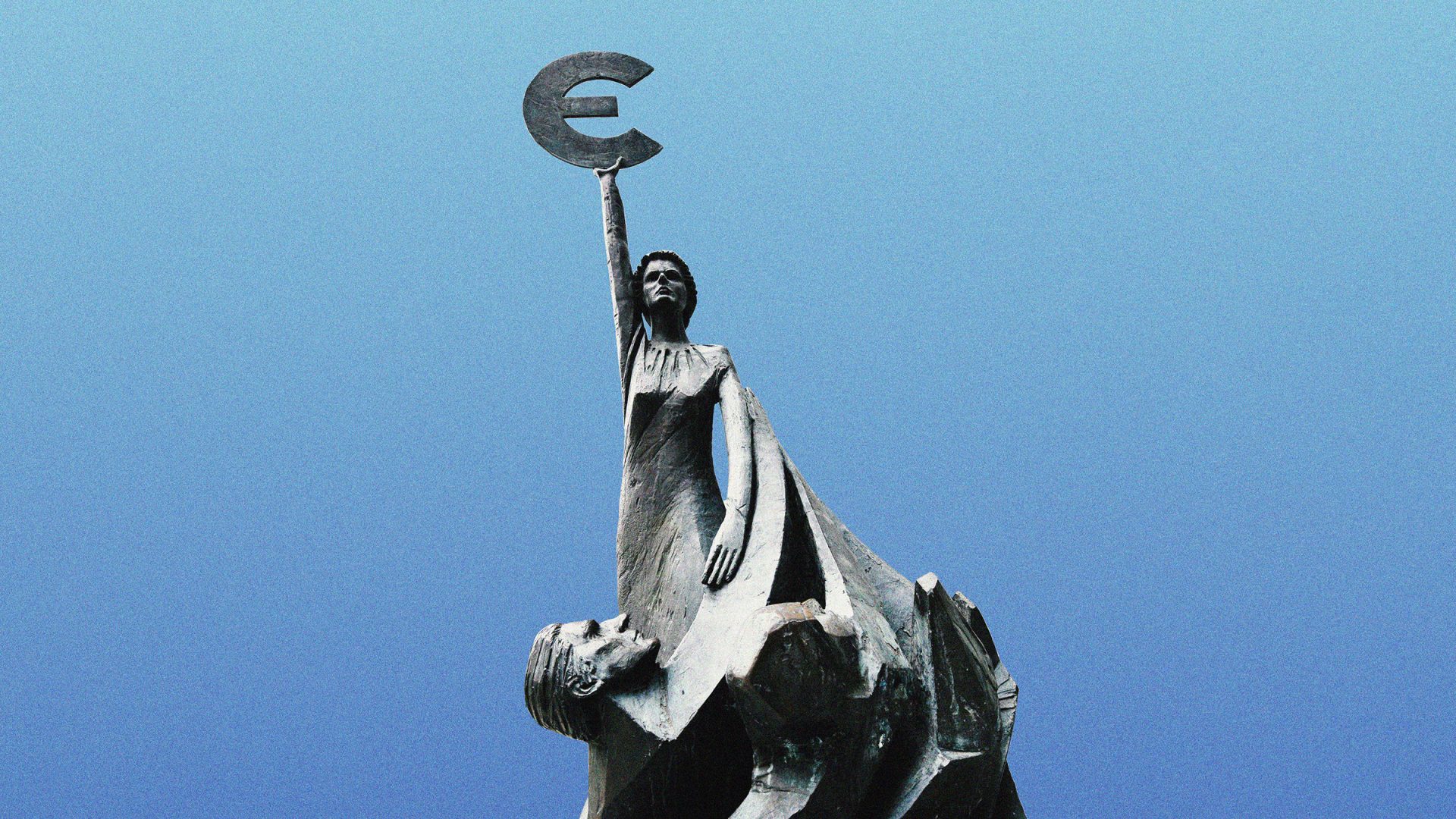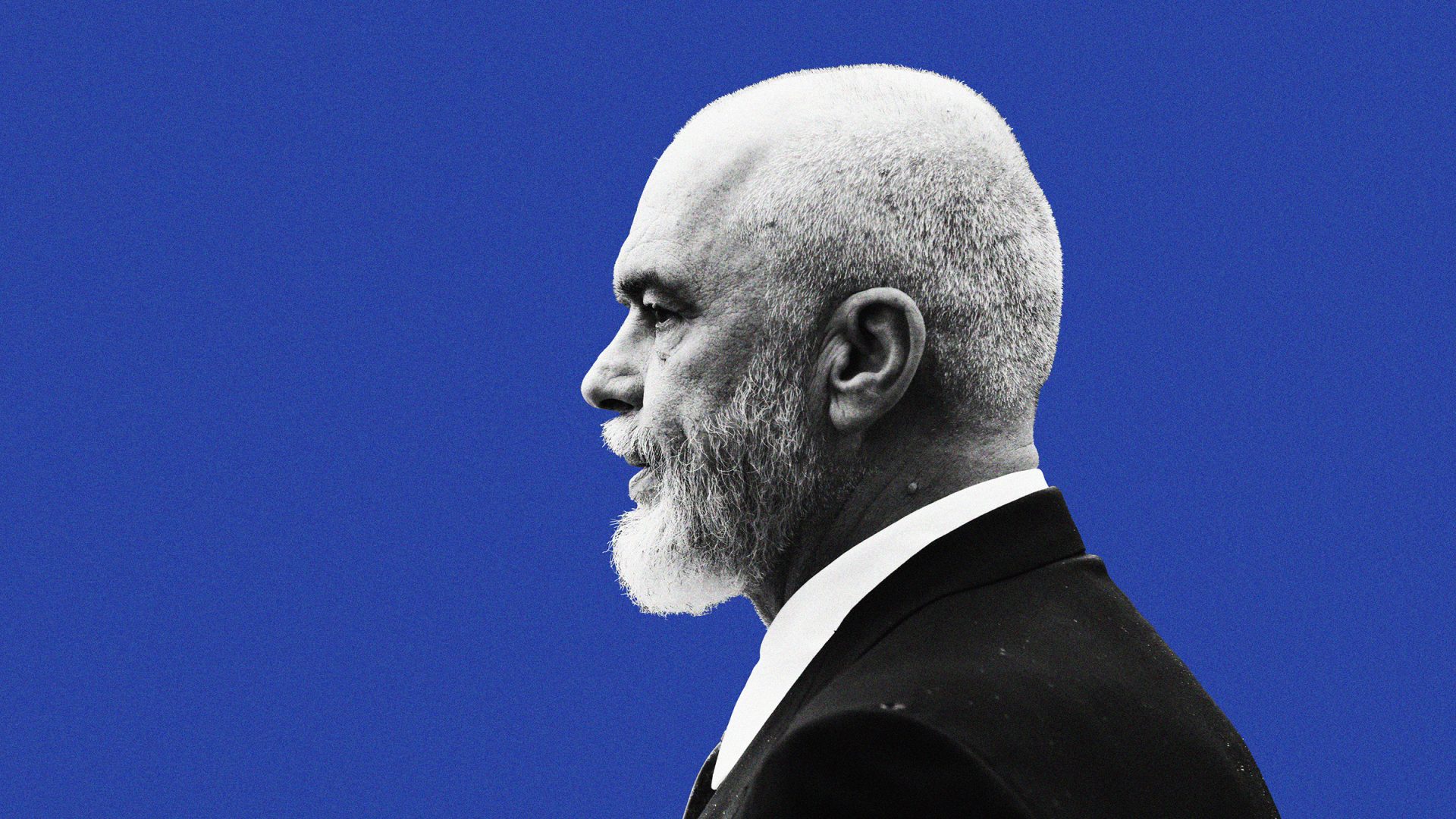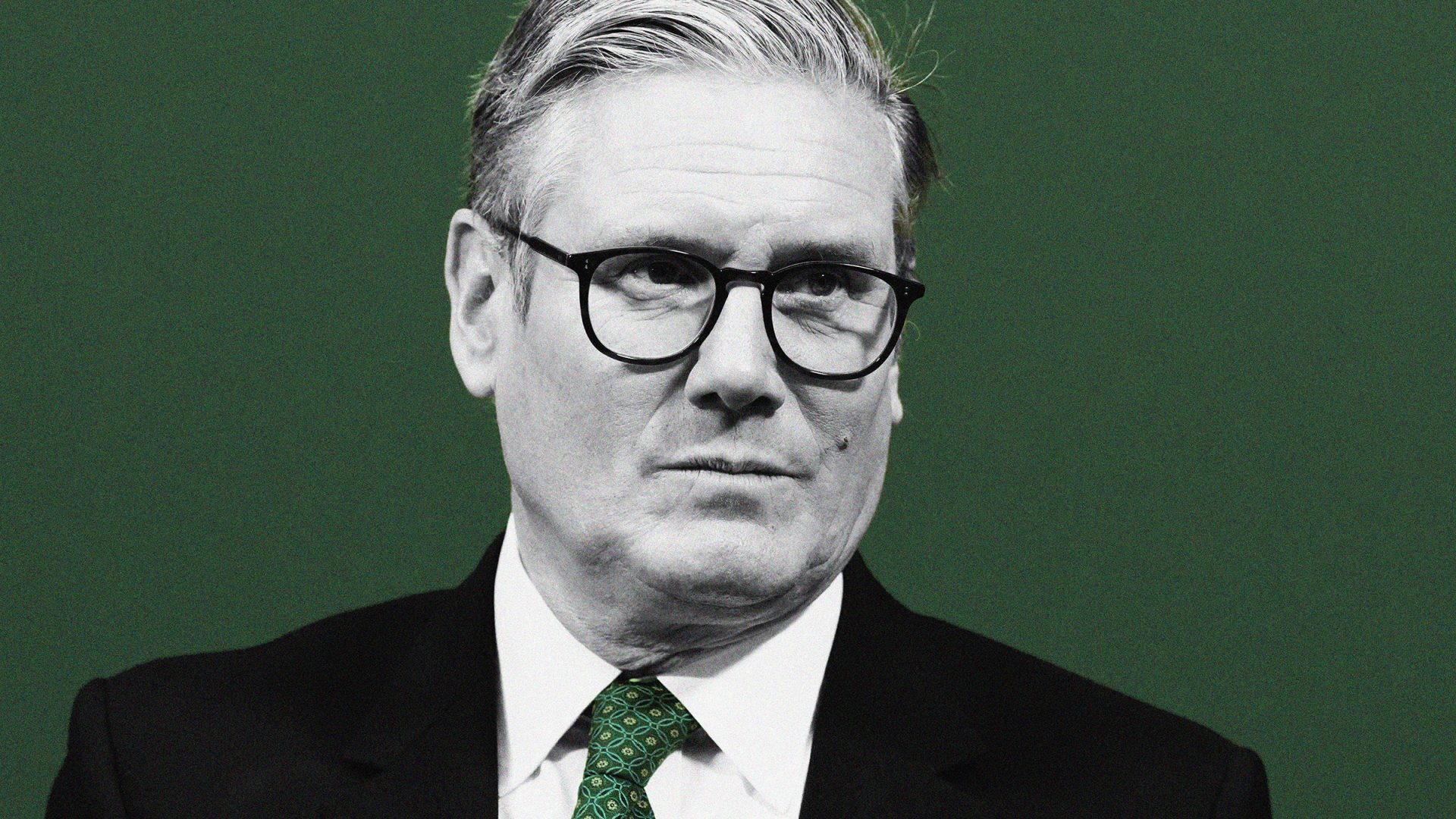To Vladimir and Donald, a child: a new Europe, to be named formally in due course. Both parents doing well (or think that they are, at least). Baby getting stronger by the day.
It is an odd reflection that the respective presidents of Russia and the US should be the founding fathers, albeit inadvertently, of the new European coalition that is arising before our eyes. But it is so.
As Vladimir Putin and Donald Trump have taken a wrecking ball to the postwar world order, democratic nations on this side of the Atlantic have been forced to rejuvenate their alliance, embrace fresh ambitions and work at pace to build a strategic bloc that can truly hold its own. Success is very far from certain; the task is dauntingly complex. But the price of failure would be colossal.
What we now call the European Union was created by the signing of the Treaty of Rome on March 25, 1957. Twelve years after the end of the war, its formation reflected the powerful, cross-border impulse to make economic cooperation the engine of reconstruction and a guarantor of peace.
The new Europe is no less the product of upheaval and a shared sense of necessity. On February 24, 2022, Putin’s invasion of Ukraine dashed the dream that land war in Europe could never happen again. The re-election of Trump on November 5 ended an era that began on December 8, 1941, when Franklin D Roosevelt committed his nation’s forces to the second world war.
For more than 80 years, Europe knew that it could rely on American protection. Yes, there were speed bumps along the way – the Suez crisis, the UK’s refusal to send troops to Vietnam, the US invasion of Grenada. But the Pax Americana survived these temporary setbacks; until now, that is.
Trump regards Europe as a museum, a historical theme park, with some charming, if antiquated institutions, and a few world-class golf courses. He is happy to fly over for the reopening of Notre Dame, Pope Francis’s funeral and – in due course – his second state visit to the UK. But he would much rather be in the Gulf, cosying up to tyrants and grifting to his heart’s content.
Indeed, contempt for Europe is integral to the psyche of MAGA. “The European Union was formed in order to screw the United States, that’s the purpose of it,” said Trump at his first cabinet meeting in February. “And they’ve done a good job of it. But now I’m president.”
In the same month, Pete Hegseth, the US defense secretary, told the Ukraine Defence Contact Group in Brussels that the US would no longer be “primarily focused on the security of Europe”. Meanwhile, at the Munich Security Conference, JD Vance claimed that the greatest peril facing Europe is “the threat from within” – the alleged decline of free speech, religious liberty and border control.
Suggested Reading


The plot to fool America
In what they thought was a private Signal exchange (which actually included Atlantic editor Jeffrey Goldberg) about plans to attack the Houthis in March, the two men were even more disdainful. Vance wrote that “I just hate bailing Europe out again” – on the spurious grounds that it was predominantly European shipping that was being targeted by the terrorist group. Hegseth replied: “I fully share your loathing of European free-loading. It’s PATHETIC”.
On May 16, furthermore, Matthew Whitaker, the US ambassador to Nato, confirmed that, after the alliance’s summit in The Hague next month, talks would begin in earnest about the withdrawal of American troops from Europe. The best he could offer by way of reassurance was that “nothing has been determined”. But the direction of travel is perfectly clear.
No less important is the dangerously capricious character of Trump’s tariffs. In his threat to impose a 50% levy on all goods from the EU he has revealed not only his vindictiveness – “Our discussions with them are going nowhere!” he complained on Truth Social – but the unpredictability that makes him a completely unreliable economic partner.
“It’s time that we play the game the way I know how to play the game,” he said in the Oval Office last Friday. “I’m not looking for a deal. I mean, we’ve set the deal. It’s at 50%”. Not for the first time, Scott Bessent, the US treasury secretary, sought to present his boss’s outburst as just another negotiating tactic.
“I think this is in response just to the EU’s pace,” he told Fox News. “I would hope that this would light a fire under the EU”. Well, maybe. On Sunday, the date of imposition for the new tariffs was pushed back from June 1 to July 9.
But this is no way to conduct commercial diplomacy. Whatever spin the president’s acolytes put upon his infantile methods, the only rational conclusion to be drawn is that the US is spinning off into its own private orbit of recklessness.
Pincered by Trump and Putin, Europe has to think afresh. And it is starting to do so. Keir Starmer’s deal with the EU, announced on May 19 alongside the European Commission president, Ursula von der Leyen, and António Costa, the president of the European Council, may not be a far-reaching treaty. But it is unquestionably, as von der Leyen noted at Lancaster House, a “roadmap”, establishing a series of strategies and frameworks for future action.
Yes, the agreement marks a significant step away from what Starmer called the “stale old debates” of Brexit. But, in its sharper focus upon defence, law and order, border control and economic innovation, it also reflects the shifting priorities of the EU. Gradually, but unmistakably, Europe is morphing into something new.
All-important to this shift was Emmanuel Macron’s proposal in May 2022 that a new “European Political Community” be formed to address the geostrategic consequences of the Ukraine conflict. Initially dismissed by some as a Gallic talking shop, the EPC has, in practice, been an important symbol of European resolve in the face of Russian aggression and of a collective determination to defend European values.
It has also brought non-EU member states to the table: only 13 days after he became prime minister, Starmer played host at Blenheim Palace to its fourth summit, which was attended by Volodymyr Zelensky.
Labour may not formally have shifted from its (meaningless) manifesto pledge to “make Brexit work”. But Starmer’s commitment to European defence has been impeccable. After the disgraceful humiliation of the Ukrainian president in the Oval Office in February, he arranged a snap summit in London on March 2 to show solidarity with Zelensky, alongside Nato secretary-general Mark Rutte, von der Leyen, Macron, the then German chancellor Olaf Scholz, Polish prime minister Donald Tusk and – to show that transatlantic partnership comes in more than one form – the outgoing prime minister of Canada, Justin Trudeau. After the gathering, Zelensky was granted an audience by King Charles at Sandringham.
More controversial was the PM’s announcement on February 25 that UK defence spending will rise to 2.5% as a share of GDP by 2027 and 3% in the next parliament. It is deeply regrettable that this extra cash is being taken from the international development budget – instead of from a new, hypothecated tax.
In the first place, reducing expenditure on aid is not only morally wrong but a false economy: as any diplomat will tell you, the strategic return on investment from overseas aid – spent on health care, education, agriculture or democracy – is immense. Secondly, this fiscal raid will not come close to covering the defence bill in this new era; nothing like.
What remains welcome is the sense of the European giant awakening from a long slumber. Again, Macron has been the principal agent of change.
“We must be lucid about the fact that our Europe is mortal,” Mr Macron declared in April 2024 at the Sorbonne. “It can die. It can die and whether it does depends entirely on our choices”
In this respect, Angela Merkel – whose reputation is at a low ebb at present – also deserves credit for warning of what was to come. “It is no longer such that the United States simply protects us, but Europe must take its destiny in its own hands, that’s the task of the future,” she said in May 2018.
On election night in Germany, the chancellor-elect, Friedrich Merz, went even further, asking “whether we will still be able to speak about Nato in its current form”. On May 10, as Trump’s boredom with the Ukrainian conflict became ever more apparent, Merz, Starmer, Macron and Tusk went to Kyiv in a remarkable display of European solidarity.
One of the reasons that I favour the case for the UK joining rather than rejoining Europe is that I think the European entity of which (I fervently hope) we will become a leading member will be very different to the one that we left at 11pm on January 21, 2020.
For a start, very few restorationist projects are successful. True, the Stuart monarchy was reinstated in 1660; US prohibition was repealed in 1933; the nations of eastern Europe regained their sovereignty at the end of the cold war. But the clock is rarely, if ever, turned back. Our liberation from Brexit will not be a time-jump to the day before the 2016 referendum. Its form will be new, non-linear and unexpected.
Necessity is usually a better engine of progress than virtue. It may feel good to call Boris Johnson and Nigel Farage idiots for wrecking the international, commercial and diplomatic status of the UK. But – in itself – self-righteous indignation is an analgesic rather than a solution.
What is happening now, partly organically, partly by overt diplomacy, is the basis of a quite novel pan-European identity. Unlike the institutions formed by the agreement of 1957 and subsequent treaties, it will have security and the rule of law rather than economic and social collaboration at its heart. The European idea must now migrate from Venus to Mars.
That said, the binding commitment to security should be broad in its remit: it should include economic resilience, pandemic strategy, action on climate change, swift and compassionate border management and social integration. There are tough decisions ahead on expenditure: satellites, fighter jets and state-of-the-art cyber-weapons do not come cheap. But we need them all.
As a matter of urgency, the new Europe will also have to reassess the balance between regulation and economic dynamism. Trump’s tariffs are scaring off investors. But, to attract those trillions of dollars, Europe must convince a sceptical world that its love of rules offers stability rather than intolerable bureaucracy and red tape.
If this continent – including the UK – is truly to compete with the US and China, it must ask with brutal honesty why it has failed so miserably to nurture tech start-ups. Europe’s fatal flaw is self-congratulation, especially in contrast to the supposed vulgarities and Darwinian social policies of America. But our energies should be focused on more practical issues now. We need the vigour of Sparta, as much as the wisdom of Athens.
Why, for instance, is it so hard to imagine a European version of Meta being founded in London, Berlin or Madrid? And, if the US really is off the pitch when it comes to strategic defence, how quickly can Europe muster a regional barrier against further Russian aggression?
How soon before European forces could pull off – for example – an operation as bold as SEAL Team Six’s assassination of Osama bin Laden in 2011? There will be moments when dormant Nato springs back into life and America joins in. But we can no longer depend upon that. Will the new Europe be capable of fighting a kinetic war unaided by the US; or a decisive response to the next iteration of state-sponsored Islamist terrorism, or to the far-right militias that are rising across the continent?
These are uncomfortable questions, and they are meant to be. If the Old World is to become the New New World, it must practise the most searching self-scrutiny.
Winston Churchill was right in 1949, as the Council of Europe was being developed, to observe that purpose and ethos count for more than the nuts and bolts of structures. “I hope we should not put our trust in formulae or in machinery,” he said, adding that it was “the growth and gathering of the united sentiment of Europeanism” that mattered.
So: what form will the new Europe take? An EU+? An EPC with legal and military power? An evolving but informal coalition of the willing across sectors? It is too early to say.
What is certain is that the work ahead will be extremely difficult and involve a doctrinal and practical agility that has not been the EU’s strongest suit. But the alternative is a supine slide to oblivion unworthy of our history and of our hopes for the future.
As Gramsci wrote in 1930: “The old world is dying, and the new world struggles to be born: now is the time of monsters”. How we fend off the monsters of today, and shape the new Europe, is the greatest question of our times.




